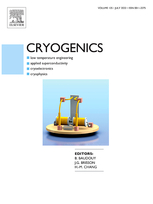
Analysis of temperature and pressure changes in liquefied natural gas (LNG) cryogenic tanks.
Author(s) : CHEN Q. S., WEGRZYN J., PRASAD V.
Type of article: Article
Summary
LNG is being developed as a transportation fuel for heavy vehicles such as trucks and transit buses, to lessen the dependency on oil and to reduce greenhouse gas emissions. A thermodynamic and heat transfer model has been developed to analyze different mechanisms of heat leak into the LNG fuel. The evolving of properties and compositions of LNG fuel inside LNG tanks is simulated. The effect of a number of buses fuelled each day on the possible total fuel loss rate has been analyzed. It is found that by increasing the number of buses, fuelled each day, the total fuel loss rate can be reduced significantly. It is proposed that an electric generator be used to consume the boil-off gas or a liquefier be used to re-liquefy the boil-off gas to reduce the tank pressure and eliminate fuel losses. These approaches can prevent boil-off of natural gas emissions, and reduce the costs of LNG as a transportation fuel.
Details
- Original title: Analysis of temperature and pressure changes in liquefied natural gas (LNG) cryogenic tanks.
- Record ID : 2005-1100
- Languages: English
- Source: Cryogenics - vol. 44 - n. 10
- Publication date: 2004/10
Links
See other articles in this issue (1)
See the source
Indexing
-
Themes:
LNG and LPG;
Applications of liquified gases - Keywords: Thermodynamics; Cryotank; Transport; Heat transfer; Temperature; Pressure; LNG; Cryogenics
-
SUBSEA PIPELINES FOR LOADING/UNLOADING LOW TEMP...
- Author(s) : BACKHAUS H.
- Date : 1983
- Languages : English
- Source: Pipes Pipelines int. - vol. 28 - n. 1
View record
-
STOCKAGE ET TRANSPORT DU GNL.
- Author(s) : LETOURNEUR O.
- Date : 1984
- Languages : French
- Source: Rev. Energ. - n. 366
View record
-
ISOLATION DES TERMINAUX METHANIERS. PROCEDE TEC...
- Author(s) : SEGURET F., LE BRIS P.
- Date : 1984
- Languages : French
- Source: Rev. gén. Froid - vol. 74 - n. 9
View record
-
GAS SHIPS: CONTAINING BOIL-OFF.
- Date : 1991
- Languages : English
- Source: MER - 1991.01; 27-28; 2 fig.
View record
-
INVESTIGATION ON THERMAL STRESSES IN SPHERICAL ...
- Author(s) : HU Y., CHEN B., LU R.
- Date : 1990
- Languages : Chinese
- Source: Shipbuild. China - vol. 108
View record
